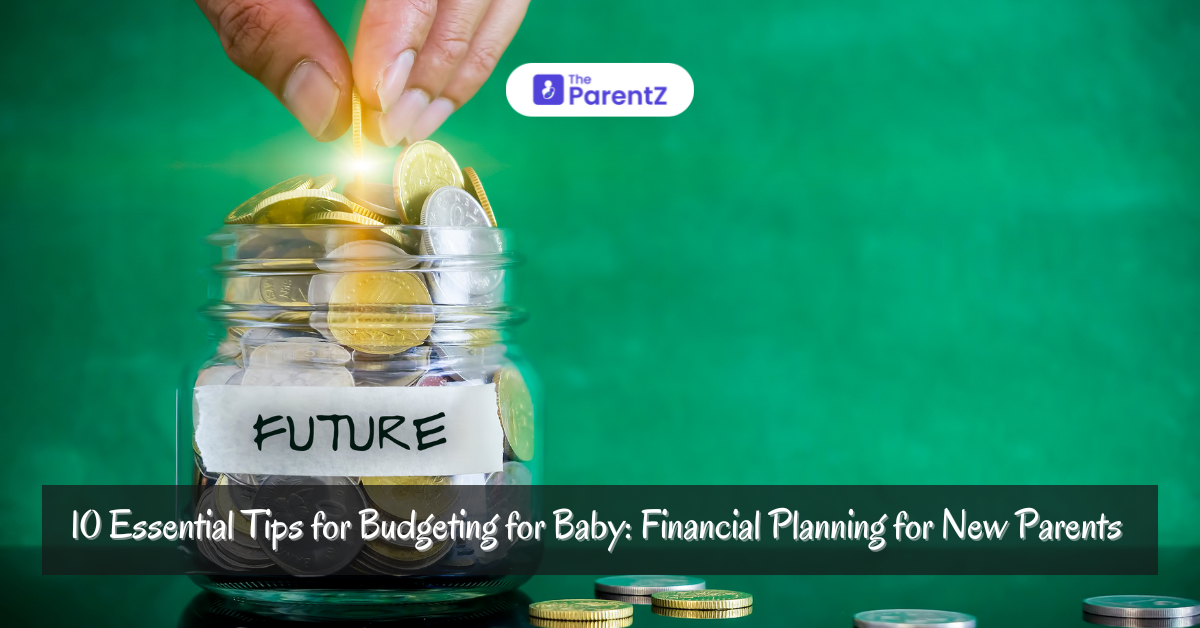Welcoming a new baby into the family is a joyous occasion, but it also brings significant financial responsibilities. Proper budgeting and financial planning are crucial to ensure you can comfortably manage the additional expenses. This article provides ten essential tips for budgeting for a baby, helping you master financial planning for your new arrival.
Understanding the Financial Impact of a New Baby
Estimating Costs
Before diving into specific budgeting tips, it’s important to understand the financial impact of a new baby. Here are some common expenses:
- Medical Costs: Prenatal care, delivery, and postnatal care can be expensive, even with insurance.
- Baby Gear: Cribs, car seats, strollers, and other essentials add up quickly.
- Daily Necessities: Diapers, formula, and baby food are recurring costs.
- Childcare: If both parents work, daycare or a nanny is a significant expense.
Creating a Financial Plan
Creating a financial plan involves assessing your current financial situation, estimating baby-related expenses, and adjusting your budget accordingly. Here are ten essential tips to help you budget effectively for your new baby.
1. Start Saving Early
Building an Emergency Fund
Begin saving as soon as you know you’re expecting. An emergency fund can cover unexpected expenses and provide financial security. Aim to save at least three to six months’ worth of living expenses.
Setting Up a Baby Fund
Open a separate savings account specifically for baby expenses. Automatically transfer a set amount of money each month to build your baby fund.
2. Review and Adjust Your Budget
Analyzing Current Spending
Review your current budget and identify areas where you can cut back. Redirect these savings towards baby-related expenses. Consider using budgeting apps to track your spending and make adjustments.
Allocating Funds
Allocate funds for essential baby expenses such as medical bills, baby gear, and daily necessities. Make sure to include both one-time and recurring costs in your budget.
3. Understand Your Insurance Coverage
Health Insurance
Review your health insurance policy to understand what is covered regarding prenatal care, delivery, and postnatal care. Make sure your baby will be added to your policy promptly after birth.
Life Insurance
Consider purchasing life insurance to ensure financial security for your family in case of unforeseen circumstances. Term life insurance is often a cost-effective option.
4. Plan for Childcare Costs
Exploring Options
Research childcare options in your area, including daycare centers, in-home daycare, and nannies. Compare costs and consider the best option for your family’s needs and budget.
Flexible Spending Accounts
Check if your employer offers a Dependent Care Flexible Spending Account (FSA). This allows you to use pre-tax dollars to pay for childcare expenses, reducing your taxable income.
5. Take Advantage of Tax Benefits
Child Tax Credit
Familiarize yourself with tax credits and deductions available to parents. The Child Tax Credit can significantly reduce your tax liability.
Dependent Care Credit
If you pay for childcare, you may be eligible for the Dependent Care Credit, which provides a tax break for qualifying expenses.
6. Buy Secondhand and Accept Hand-Me-Downs
Thrifty Shopping
Consider buying secondhand baby gear and clothing. Many items are gently used and significantly cheaper than new. Look for secondhand stores, online marketplaces, and community swaps.
Accepting Donations
Don’t hesitate to accept hand-me-downs from friends and family. Babies outgrow clothes and gear quickly, so used items are often in excellent condition.
7. Breastfeeding and Homemade Baby Food
Cost Savings of Breastfeeding
If possible, breastfeeding can save a substantial amount of money compared to formula feeding. It also provides numerous health benefits for both mother and baby.
Making Baby Food
Preparing homemade baby food is another way to save money and ensure your baby gets nutritious meals. Invest in a good blender or food processor and use fresh, whole foods.
8. Create a Baby Registry
Registering for Essentials
Create a baby registry to let friends and family know what items you need. Focus on essentials like diapers, baby gear, and clothing. A well-planned registry can significantly offset your costs.
Researching Products
Take the time to research products and choose high-quality, durable items. Reading reviews and comparing prices can help you make the best choices.
9. Budget for Parental Leave
Understanding Leave Policies
Review your employer’s parental leave policy to understand how much time you can take off and whether it’s paid or unpaid. Plan your finances accordingly to cover the income gap during your leave.
Saving for Leave
If your leave is unpaid or partially paid, start saving to cover your living expenses during this period. Having a financial cushion will reduce stress and allow you to focus on your new baby.
10. Plan for Long-Term Expenses
Education Savings
Start saving for your child’s education early. Consider opening a 529 savings plan, which offers tax advantages for education expenses.
Future Financial Planning
Think about long-term financial goals for your family. This might include buying a home, building a college fund, or saving for retirement. Incorporate these goals into your financial plan.
Conclusion
Budgeting for a baby requires careful planning and financial discipline. By starting early, understanding your expenses, and making smart financial decisions, you can ensure a secure and comfortable environment for your growing family. These ten essential tips for budgeting for a baby will help you master financial planning and provide a strong foundation for your new arrival.








Be the first one to comment on this story.